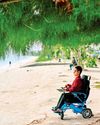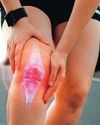
ON MARCH 22, two days before the nationwide lockdown began, Tamil Nadu Chief Minister Edappadi Palaniswami and his deputy O. Panneerselvam relieved S. Rajenthra Bhalaji, the dairy development minister, of his role as the AIADMK’s district secretary for Virudhunagar. The decision came hours after Bhalaji made a controversial statement linking COVID-19 and religion. Then, on March 30, as everyone waited for Health Minister Dr C. Vijayabaskar to provide pandemic-related updates after a meeting at the state secretariat, Palaniswami, aka EPS, walked out and took his place. The following day, when WHO representatives came visiting, Vijayabaskar was nowhere to be seen. It was EPS who launched a special COVID ward at the government multi-speciality hospital at Omandurar Estate in Chennai.
The two incidents, involving two ministers, had a whiff of days gone by. They reminded political analysts of one J. Jayalalithaa, whose passing, incidentally, led to EPS becoming chief minister.
When he first took over, critics said his rule would be short-lived. However, the day after his swearing-in, he sent out a message. Unlike predecessor Panneerselvam, aka OPS, he chose to enter Jayalalithaa’s chamber and sit in her chair. He then fulfilled five of her poll promises, including phased prohibition, and signalled that he would be a welfare chief minister.
Since then, EPS has gone from a Salem strongman to the de facto face of the party. “Palaniswami has the knack for political manoeuvring,” said senior journalist Tharasu Shyam.
However, several decisions—from the police shooting anti-Sterlite protesters in Thoothukudi to the AIADMK supporting the Citizenship (Amendment) Act—made the party look like the Centre’s puppet. Despite this, EPS has managed to survive.
Bu hikaye THE WEEK dergisinin April 26, 2020 sayısından alınmıştır.
Start your 7-day Magzter GOLD free trial to access thousands of curated premium stories, and 9,000+ magazines and newspapers.
Already a subscriber ? Giriş Yap
Bu hikaye THE WEEK dergisinin April 26, 2020 sayısından alınmıştır.
Start your 7-day Magzter GOLD free trial to access thousands of curated premium stories, and 9,000+ magazines and newspapers.
Already a subscriber? Giriş Yap

Walking in pine forest can have the same effect as a prescription drug
INTERVIEW - KATHY WILLIS, professor of biodiversity, the University of Oxford, and author, Good Nature

MORE THAN A HELPING HAND
Maria Victoria Juan spent a lifetime healing wounded soldiers, and she can't think of anything she could have done better

Against all odds
Mohamed Raishan Ahmed was born with spinal muscular atrophy, which made him unable to sit, stand or walk. Recently, the Maldivian underwent a rare, complex surgery in India that now allows him to sit upright. At 23, the fact that he is alive is in itself an achievement. But he has gone beyond mere survival-with a pursuit of excellence

A pacemaker tale
From science fiction to reality, with a touch of southern Indian wisdom

Driving safe
Taxi drivers endure gruelling hours, cramped seats and relentless traffic, making them prime candidates for health issues like back pain, hypertension, diabetes and insomnia.

Good food, good life
From the moment of birth, we establish a relationship with food—a nourishing link that requires care and attention to stay healthy

POOR SLEEP IN MIDLIFE COULD AGE YOUR BRAIN FASTER
PEOPLE WHO EXPERIENCE SLEEP ISSUES, such as difficulty falling asleep or staying asleep in their 40s, may show more signs of brain ageing in late midlife. Poor sleep may accelerate brain atrophy that is associated with dementia.

BRAIN SCANS SHOW MINDFULNESS MEDITATION CAN REDUCE PAIN
CAN MINDFULNESS MEDITATION actually relieve pain, or is it just a placebo effect?

NON-SURGICAL OPTION TO EASE KNEE ARTHRITIS
A NEW, MINIMALLY INVASIVE procedure called genicular artery embolisation (GAE) can effectively reduce pain, improve quality of life and reduce progression of the disease and the need for knee replacement surgery in people with knee osteoarthritis.

EARLY ONSET DIABETES, BELLY FAT LINKED TO DEMENTIA
FACTORS SUCH AS DIABETES and belly fat in midlife can put you at risk of dementia and Alzheimer's disease later in life.